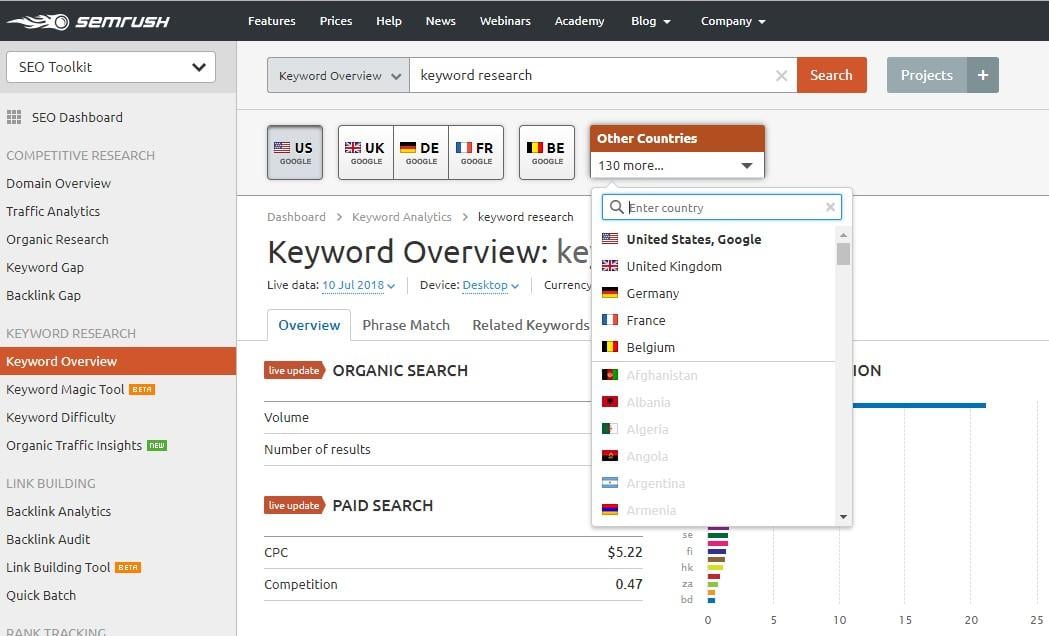Browsing the Digital Landscape: Leveraging International SEO for Cross-Border Success
In today's interconnected digital globe, companies are increasingly looking past borders to tap right into global markets. The complexity of navigating the digital landscape on an international range requires a nuanced approach, from understanding the principles of International Search engine optimization to implementing geotargeting and multilingual key words methods.
Comprehending International Search Engine Optimization Principles
Navigating the complexities of international Search engine optimization needs a strong grasp of basic principles to successfully increase online presence across borders. One vital element of worldwide Search engine optimization is recognizing the relevance of localization.
In addition, having a clear understanding of geo-targeting is vital. This entails indicating to internet search engine the details nations or regions a web site is targeting. Carrying out hreflang tags is one method to connect this details, making sure that the proper version of a page appears in the search engine result for an individual in a particular place.
Furthermore, understanding the impact of regional online search engine and social media sites systems is vital for worldwide search engine optimization success. For instance, while Google is dominant in several areas, countries like China have their very own search engines like Baidu, calling for tailored techniques for each system to maximize online exposure.

Targeting Multilingual Key Phrase Approaches
Creating multilingual keyword phrase techniques is essential for effectively reaching varied global target markets and making the most of on-line visibility throughout various linguistic regions. When targeting multilingual search phrase techniques, it is vital to carry out extensive research to understand the certain search terms and expressions used by the target audience in each etymological area. This entails not only translating key phrases however additionally thinking about cultural nuances, regional languages, and search patterns distinct to every target market.
To produce an effective multilingual search phrase method, it is essential to prioritize relevance and search intent. Keyword phrases need to straighten with the content on the website and reverberate with the cultural context of the target market. Making use of devices such as Google Key Words Organizer, SEMrush, or Ahrefs can help identify high-performing search phrases in various languages and assess their search quantity and competition degree.
Furthermore, monitoring and analyzing the performance of multilingual key words routinely is essential for maximizing and refining the technique gradually. By continually adapting to adjustments in search actions and fads, services can improve their online visibility and attract more international website traffic to their websites.
Carrying Out Geotargeting and Hreflang Tags
When intending to boost worldwide search engine optimization techniques, incorporating geotargeting and hreflang tags is vital for enhancing internet site exposure throughout various regions. Geotargeting involves customizing content to particular areas, guaranteeing that individuals in different locations obtain relevant information. By implementing geotargeting, businesses can boost their neighborhood search positions and attract region-specific web traffic.

Optimizing Website Framework for Worldwide Presence
To further enhance international Search engine optimization techniques beyond geotargeting and hreflang tags, optimizing the site framework is essential for achieving global visibility and optimizing reach across different regions. A well-structured web site not just boosts individual experience yet also assists in search engine spiders in recognizing the web content and context of the site.
Additionally, creating language-specific subdirectories or subdomains can assist internet search engine provide the right version of the web site to customers based upon their language choices, even more enhancing the general user experience. Additionally, enhancing URL frameworks to consist of appropriate search phrases and geotargeted terms can boost the website's presence in different regions. By structuring the site successfully for global target markets, companies can boost their opportunities of drawing in international traffic and broadening their reach across borders.

Monitoring and Evaluating Cross-Border Performance
Efficient tracking and click here for more info analyzing of cross-border efficiency is crucial for examining the success of global search engine optimization strategies and identifying chances for renovation in global reach and exposure. By closely tracking essential performance signs (KPIs) across different markets, services can gain valuable understandings right into the performance of their cross-border search engine optimization efforts. Checking metrics such as natural web traffic, keyword positions, conversion prices, and bounce rates can give a detailed sight of just how well an internet site is carrying out in various regions.
Evaluating cross-border efficiency information allows organizations to recognize trends, patterns, and locations for optimization. By comparing efficiency throughout different countries, regions, or languages, firms can identify effective strategies and center content to much try this web-site better satisfy details target audiences. Furthermore, keeping an eye on cross-border efficiency allows organizations to stay nimble and receptive in the ever-evolving electronic landscape. Routine evaluation of SEO performance on a global range makes sure that companies can adjust their approaches rapidly to take advantage of emerging possibilities and maintain an one-upmanship in international markets.
Conclusion
To conclude, global search engine optimization plays an essential duty in attaining cross-border success by maximizing internet sites for worldwide exposure, targeting multilingual keyword approaches, implementing geotargeting and hreflang tags, and keeping track of cross-border performance. By comprehending the fundamentals of global SEO and optimizing site frameworks accordingly, companies can effectively reach and involve with their target market across various areas and languages. This tactical approach is necessary for expanding market reach and driving on the internet growth in today's electronic landscape.